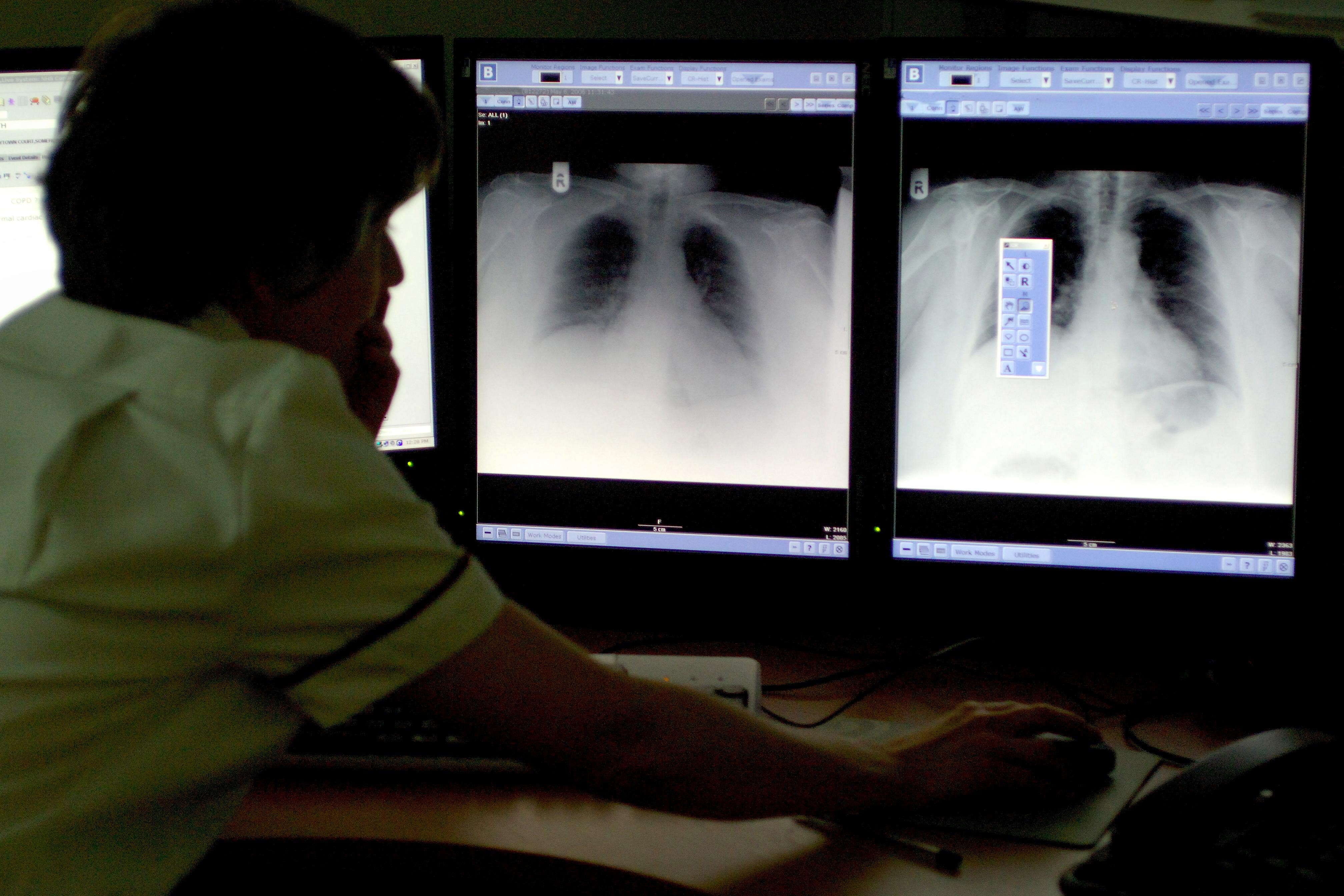AI to be deployed more widely across the NHS as new funding announced
It is hoped AI will help diagnose the likes of cancer, stroke and heart conditions faster, as well as helping to cut NHS waiting times.

Your support helps us to tell the story
From reproductive rights to climate change to Big Tech, The Independent is on the ground when the story is developing. Whether it's investigating the financials of Elon Musk's pro-Trump PAC or producing our latest documentary, 'The A Word', which shines a light on the American women fighting for reproductive rights, we know how important it is to parse out the facts from the messaging.
At such a critical moment in US history, we need reporters on the ground. Your donation allows us to keep sending journalists to speak to both sides of the story.
The Independent is trusted by Americans across the entire political spectrum. And unlike many other quality news outlets, we choose not to lock Americans out of our reporting and analysis with paywalls. We believe quality journalism should be available to everyone, paid for by those who can afford it.
Your support makes all the difference.Artificial intelligence (AI) is set to be rolled out more widely across the NHS in a bid to diagnose diseases and treat patients faster.
The Government has announced a £21 million funding pot that NHS trusts can apply for to implement AI tools for the likes of medical imaging and decision support.
This includes tools that analyse chest X-rays in suspected cases of lung cancer.
AI technology that can diagnose strokes will also be available to all stroke networks by the end of 2023 – up from 86% – and could help patients get treated faster and lead to better health outcomes.
The Department of Health and Social Care (DHSC) said the technology could help cut NHS waiting lists ahead of winter.
At a time when diagnostic services are under strain, it is critical that we embrace innovation that could boost capacity
Bids are being welcomed for any AI diagnostic tool, although the DHSC said they “will have to represent value for money for the funding to be approved”.
The Government has invested £123 million in 86 AI technologies to date.
Professor Stephen Powis, NHS national medical director, added: “The NHS is already harnessing the benefits of AI across the country in helping to catch and treat major diseases earlier, as well as better managing waiting lists so patients can be seen quicker.
“As we approach our milestone 75th birthday, this is another example of how NHS is continuing its proud history of adopting the latest proven technology to deliver better care for patients, and better value for taxpayers.”
Dr Katharine Halliday, president of the Royal College of Radiologists, said embracing innovation is “critical”.
She added: “At a time when diagnostic services are under strain, it is critical that we embrace innovation that could boost capacity – and so we welcome the Government’s announcement of a £21 million fund to purchase and deploy AI diagnostic tools.
“All doctors want to give patients the best possible care. This starts with a timely diagnosis, and crucially, catching disease at the earliest point.
“There is huge promise in AI, which could save clinicians time by maximising our efficiency, supporting our decision-making and helping identify and prioritise the most urgent cases. Together with a highly trained and expert radiologist workforce, AI will undoubtedly play a significant part in the future of diagnostics.”
The funding package comes after NHS England’s chief executive Amanda Pritchard said further applications for AI in the health service are on the horizon.
In a keynote speech, she told delegates at the 2023 NHS ConfedExpo: “As a national health service, we are in prime position to be able to make this technology available quickly. And our national commercial powers make us well placed to get the best deal for taxpayers.”
Debates around how advancements in AI should be regulated are ongoing.
Earlier in June on a visit to the US, Prime Minister Rishi Sunak said he wanted to avoid “scaremongering” discourse around the technology, but acknowledged it could pose the same risks as nuclear war and pandemics if not monitored appropriately.
Days earlier, minster for tech and digital economy Paul Scully urged for the focus of the conversation to shift from a “Terminator-style scenario” to AI’s potential usefulness, particularly in healthcare.
The Government recently launched the AI & Digital Regulation Service to help NHS staff find information and guidance on deploying AI safely.